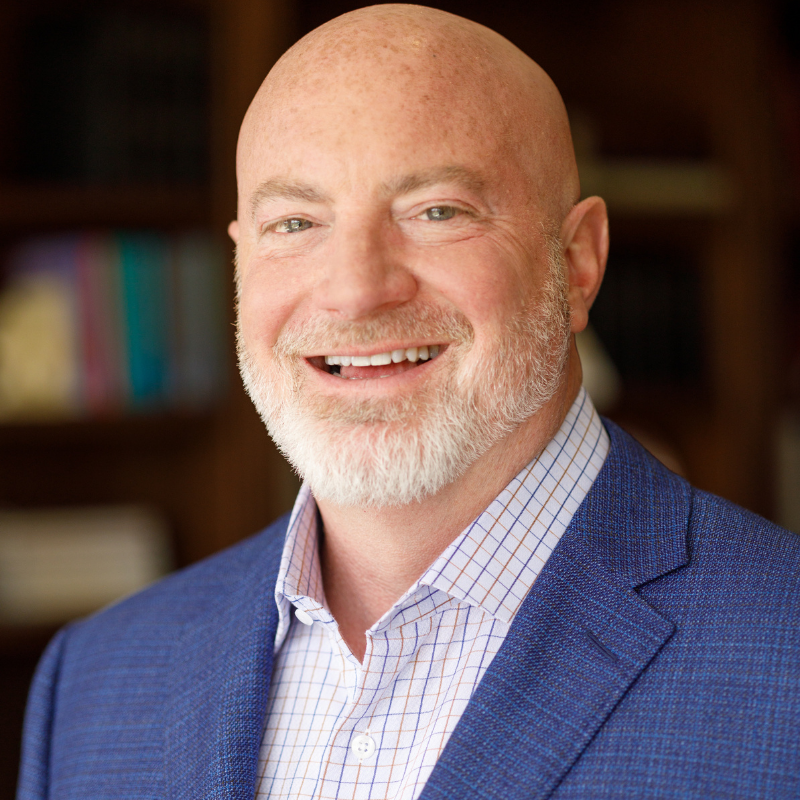God wants so much to give you peace. This peace that He wants to give you is much more than the absence of conflict or a feeling of tranquility. It includes those things, but is much more than those things. The peace that is promised to us throughout Scripture is based on the Hebrew word and concept of “shalom.” Shalom is a huge idea. It is the vision of life as God designed it in the beginning, before human choices brought the curse that forced fallen people to live in a fallen world. Shalom and its variations are used some 550 times in the Bible and are translated into English not only by the word peace, but also by words like wholeness, well-being, harmony, flourishing, fulfillment, delight, and prosperity. And even these words - glorious as they are - only begin to capture the kind of life God wants for His people. The Good News is that Jesus made this life possible when He showed up on this planet as the Prince of Peace - or literally the Prince of Shalom - and did what He did to redeem fallen people and this fallen world. Jesus made the life God wants for us accessible to each of us. Through Jesus, God wants to give you His peace in all of its shalom glory.
In my new book, The Lord Give You Peace; A 28-Day Journey To Thrive In God’s Shalom, I define the peace the Lord gives as “the harmonious working together of every part of our lives in alignment with God’s good intentions, bringing holistic well-being, productive flourishing, and happy fulfillment.”[1] In the rest of this article, I want to help us explore the four big ideas in this definition of shalomic peace. I suggest that we talk about this in terms of “expectations.”
1. Living in Alignment with God’s Good Intentions
We should expect that the presence of Jesus in our lives will help us to align our lives with God’s design. The Apostle Paul taught us that Jesus “is our peace.” [2] When we receive Jesus, we receive peace. This peace can and will grow in every dimension of our lives as Jesus empowers us to live in sync with the way God designed life to work. We are told in Isaiah’s prophecy that when Jesus came as the Prince of Peace, His peace increases as His Kingdom increases.[3] We might say that the more of our lives He rules, the more of our lives we experience peace.
When Jesus announced that He had brought God’s Kingdom to earth, He said … ”the rule of God is now accessible to everyone. Review your plans for living and base your life on this remarkable new opportunity.”[4] In order for peace to increase, we must ask God for His grace to arrange our lives according to His plan. We must live under His rule. Tim Keller wrote that “human life works properly only when it is conducted in line with the ‘owner's manual,’ the commandments of God. If you disobey the commands…you are actually acting against your own nature as God designed you.” God gave us rules for life so that we can live in alignment with his good intentions. God says, “I am the Lord your God, who teaches you what is best for you, who directs you in the way you should go. If only you had paid attention to my commands, your peace would have been like a river, your well-being like the waves of the sea.”[5]
We should know that Jesus is our peace, and expect that His peace will continue to grow in and through us as we live in alignment with His rule in our lives.
2. Holistic Well-Being
Two famous passages of Scripture come to my mind here. First is the God taught prayer that the priests were to pray to bless the people. It begins with “The Lord bless you” and ends with The Lord give you peace.” Scholar Roy Gane translates beginning and ending like this: “May the Lord bless you…and give you well-being.” [6]This captures an important aspect of shalom; shalom includes well-being.
Second, I love the Message translation of Isaiah 9:6-7 regarding Jesus being the Prince of Peace, or literally the Prince of Shalom. It says Jesus is the “Prince of Wholeness. His ruling authority will grow, and there will be no limits to the wholeness he brings.[7] This captures another important aspect of shalom; shalom includes wholeness.
As God’s peace grows in your life, you should expect well-being in the whole of your life. Holistic well-being. You should expect to have spiritual health, but even more than that. You should also expect mental health, physical health, relational health, and health in your work-life and finances. God’s peace will bring holistic well-being, and you should expect nothing less.
3. Productive Flourishing
Productive flourishing ups the ante on holistic well-being. Productive flourishing is more than just wellness. It is a thriving well-being that produces positive results. Or to say it in a more biblical way, when we flourish, we produce good fruit.
You should expect to see the evidence of shalom in and through your life. Your marriage will thrive. Your friendships will thrive. Your business will thrive. Your ministry will thrive. Every area of your life will produce good fruit.
Flourishing is not a passive state. You are not just saying “I am well.” You are also saying, “good things are happening through my life. I see positive results. I am flourishing.”
4. Happy Fulfillment
Theologian Graham Cole offered a wonderful definition of shalom. He wrote, “to dwell in shalom is to enjoy living before God, to enjoy living in one’s physical surroundings, to enjoy living with one’s fellows, to enjoy life with oneself.”[8] Enjoy. Enjoy. Enjoy. Enjoy. I really like that.
To have happy fulfillment is to enjoy the life God has given us and to live to fulfill His purposes. It is to find pleasure in the promise of Jesus, who said, “My purpose is to give them a rich and satisfying life” or “real and eternal life, more and better life than they ever dreamed of.”[9] This life is found when we live the life God dreamed for us.
Happiness is part of the shalomic package. This is happiness based on fulfilling our purpose. It is a happy fulfillment. I sometimes feel like Christians are afraid to just want to be, or to expect to be, happy. But when peace comes, happiness follows.
The Apostle Paul wrote this to the Christians living in Rome in the first century: “Since we have been made right with God by our faith, we have peace with God. This happened through our Lord Jesus Christ, who, through our faith, has brought us into that blessing of God’s grace that we now enjoy. And we are happy because of the hope we have of sharing God’s glory.”[10] Through our faith, we have peace with God. We enjoy the blessings of God’s grace now. And we are happy as we share in God’s glory, who He is and what He is doing and will do.
When you have peace with God, you have the basis of every good possibility of life, including happiness, now and forever. Expect that when you confess your faith in Him and receive His peace, your life will be aligned with His purposes. Expect that you will experience holistic well-being and productively flourish. Expect that you will be happy and fulfilled. God wants to give you His peace and all that it means. Expect it today.
[1] The Lord Give You Peace: A 28-Day Journey to Thrive in God’s Shalom, Terry A. Smith, pg. 15
[2] Ephesians 2:13 NIV
[3] Isaiah 9:7 NIV
[4] Mark 1:15 - As translated by Dallas Willard; Divine Conspiracy, Dallas Willard, pg. 15
[5] Isaiah 48:17-18 NIV
[6] The NIV Application Commentary: Leviticus & Numbers, Roy Gane, pg. 539
[7] Isaiah 9:6-7 MSG
[8] God the Peacemaker: How Atonement Brings Shalom, Graham A. Cole, pg. 22
[9] John 10:10 NLT/MSG
[10] Romans 5:1-2 NCV
Photo Credit: ©Unsplash/Hean Prinsloo

A gifted communicator and cofounder of The New York City Leadership Center (now Movement.org), Terry speaks in a variety of national and international venues, inspiring others to discover and pursue the life God dreams for them. (www.terryasmith.com)
He is the best-selling author of The Lord Give You Peace: A 28-Day Journey to Thrive in God’s Shalom; The Lord Bless You: A 28-Day Journey to Experience God’s Extravagant Blessings; The Hospitable Leader: Create Environments Where People and Dreams Flourish; and Live Ten: Jumpstart the Best Version of Your Life. He is also the host of The Life God Dreams For You with Terry A. Smith & The Life Christian Church on WMCA 570AM & 102.3 FM, on Sunday mornings at 9am EST (www.tlcc.org/dreams)






